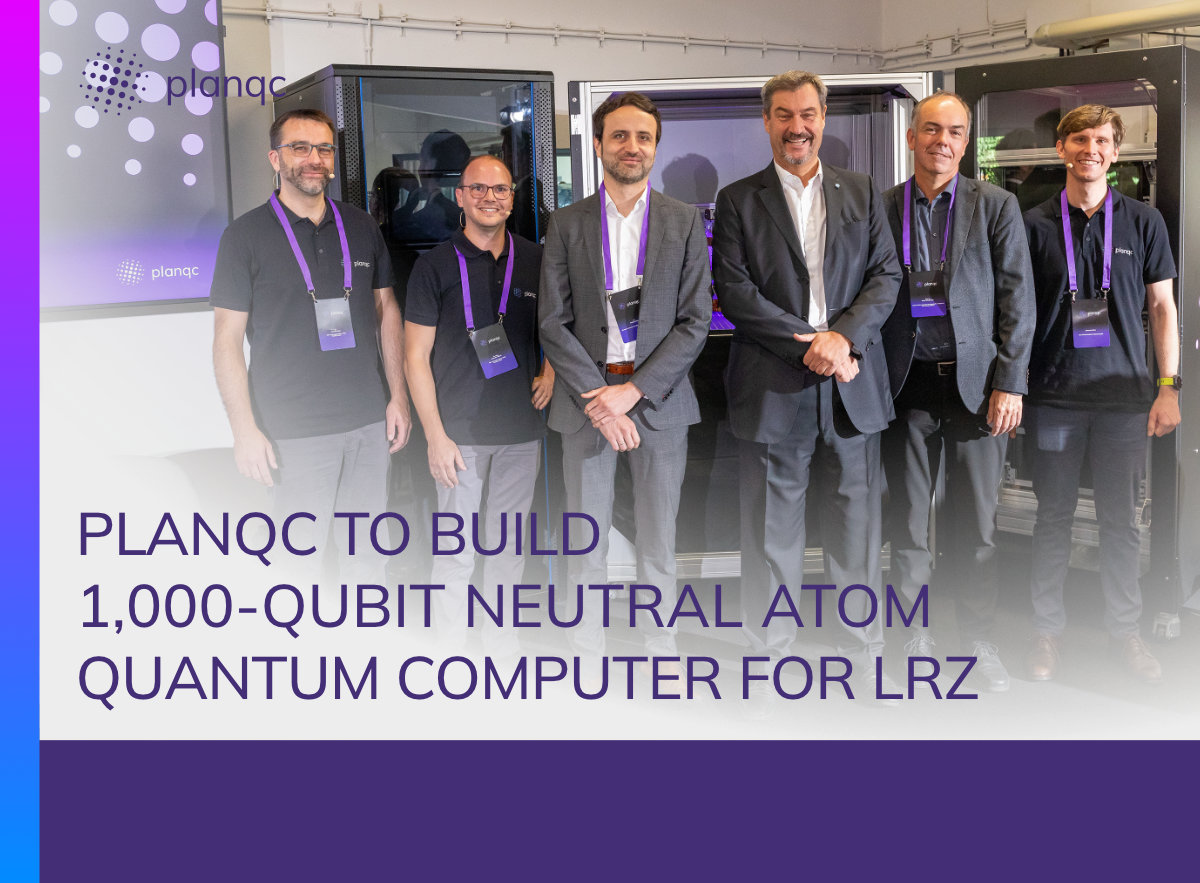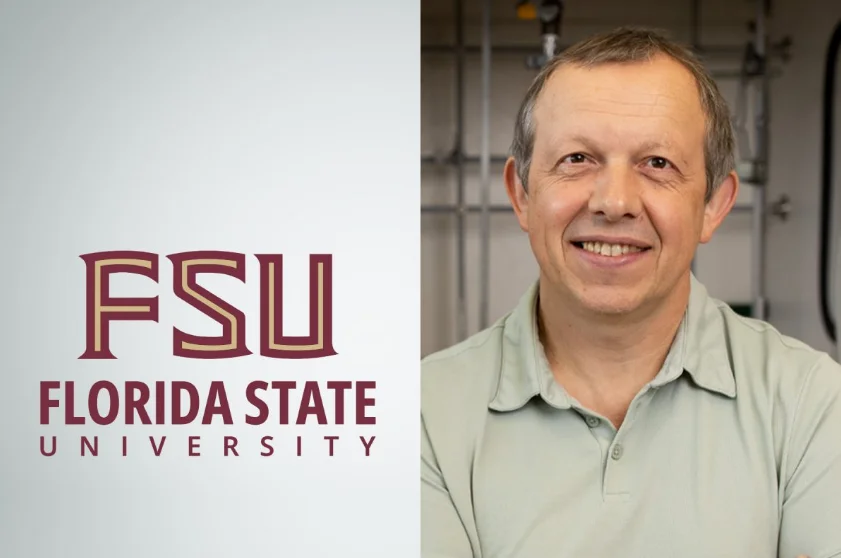Insider Brief:
- Planqc has been selected to lead a €20 million (approximately $21 million) project to develop a 1,000-qubit quantum computer, based on neutral atoms, integrated into the Leibniz Supercomputing Centre’s HPC infrastructure to accelerate scientific and industrial research.
- Funded by Germany’s Federal Ministry of Education and Research, the Multicore Atomic Quantum Computing System (MAQCS) will feature a multi-core design that enhances computational speed and efficiency, with support from the Max-Planck-Institute of Quantum Optics.
- Planqc’s neutral-atom technology, capable of operating at room temperature, intends to deliver long coherence times and scalable qubit counts as a step towards practical, large-scale quantum computing.
- Image Credit: planqc
PRESS RELEASE — planqc has been selected to lead a €20 million (approximately $21 million) project to build and deploy a 1,000-qubit quantum computer at the Leibniz Supercomputing Centre (LRZ) in Garching near Munich. This advanced quantum computer, based on neutral atoms, will be integrated into LRZ’s high-performance computing (HPC) infrastructure, serving as an accelerator for scientific research and towards industrial applications.
The project, named “Multicore Atomic Quantum Computing System” (MAQCS) is funded by the German Federal Ministry of Education and Research (BMBF). It aims to install a universally programmable quantum computer that leverages neutral atoms in an innovative multi-core architecture, boosting both computational speed and efficiency. Development is supported by the Max-Planck-Institute of Quantum Optics (MPQ) as the third part of the consortium with planqc and LRZ.
“We are excited to collaborate with the LRZ and the MPQ to spearhead this groundbreaking project, positioning planqc as a European leader in neutral atom quantum computing. Surpassing 1,000 qubits and integrating this system into a supercomputing ecosystem as a co-processor is a major leap forward, bringing the German quantum ecosystem in line with global advancements,” says Alexander Glätzle, CEO and co-founder of planqc. “This milestone brings us closer to developing quantum computers capable of solving complex problems in various industries, such as pharmaceuticals, materials science, and cryptography.”

Prof. Dr. Dieter Kranzlmüller, Chairman of the Board of Directors at LRZ, one of Germany’s three national supercomputing centres, adds, “planqc stems from the renowned quantum expertise and experience of MPQ. We’re excited to bring their neutral atom system into LRZ and to work together to merge its unique capabilities into our integrated High-Performance Computing and Quantum Computing (HPCQC) environment for the benefit of our users’ research. The potential wins for next-generation hybrid computing are many.”
Breaking through the barrier of 1,000 qubits is expected to generate added value for science and industry-relevant problems for the first time. Thus, the MAQCS system will offer LRZ’s end-users a powerful new tool for research and development.
Strengthening Germany’s Quantum Leadership
Quantum computers have the potential to revolutionize fields such as drug discovery, material science, cryptography, and climate research by tackling complex problems beyond the capabilities of classical computers. With planqc’s cutting-edge technology and strong government backing, Germany is poised to lead in the global quantum computing race, this project represents the second major government-funded initiative for planqc, following a €29 million order from the German Aerospace Centre (DLR).
The MAQCS quantum computer will employ neutral atoms in optical lattices as qubits and feature a multi-core architecture with two independent cores of 1,000 qubits in total. This parallel processing capability reduces latency by enabling one core to reset while the other continues computations, significantly boosting speed and efficiency. The project also emphasizes the advancement of quantum error correction, a critical step toward reliable and fault-tolerant quantum computing.
“With the MAQCS project, planqc is demonstrating the potential of neutral-atom quantum computing. Our innovative multi-core architecture not only boosts efficiency and scalability but also lays the groundwork for real-world applications. We are proud to lead this effort and help establish Germany at the forefront of global quantum innovation,” adds Sebastian Blatt, CTO and co-founder of planqc.
planqc’s use of neutral atoms as qubits is particularly promising for scaling to large qubit counts with longer coherence times and higher accuracy, crucial requirements for developing industrial-grade quantum computers. In contrast to quantum systems functional only at temperatures close to absolute zero, planqc’s 1,000-qubit quantum computer can be operated at room temperature.
Integration into LRZ’s Software Stack for Seamless Access
The MAQCS quantum computer will be integrated into LRZ’s Munich Quantum Software Stack (MQSS), a hybrid supercomputing environment that tightly links HPC and quantum computing hardware. Users will be able to access the system through both cloud-based interfaces and direct HPC workflows, ensuring broad accessibility and seamless operation.
The planqc system represents the third quantum computing type in LRZ’s portfolio, following a series of systems based on superconducting circuits, including a 20-qubit quantum computer from IQM, and a 20-qubit system from AQT based on trapped ions. The ability to provide on-site solutions for quantum computing in conjunction with supercomputers is essential for the development of cutting-edge high-tech solutions from Europe.















